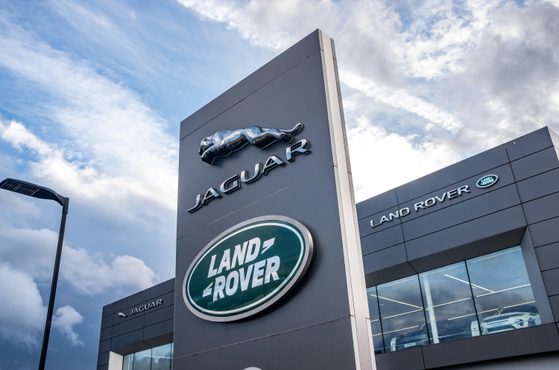Am I a data controller? GDPR for social media users explained

We look at the UK GDPR and the Data Protection Act 2018 and outline how the GDPR can apply to both organisations and individuals as data controllers.
Read more
We make the difference. Talk to us: 0333 004 4488 | hello@brabners.com
9 min read

Two recent cases that involve water companies accused of greenwashing in their advertisements demonstrate that it can be difficult to predict how regulators will treat their claims.
Here, we examine the ‘green’ claims made by Anglian Water and Severn Trent Water and the subsequent ASA decisions before setting out five learning points for environmental-focused advertisements.
These aren’t easy times to be running a water company, with frequent (and perhaps justifiable) criticism over the levels of dividends they are paying out, despite the concern surrounding environmental harm caused by the discharge of sewage into our rivers and seas.
Last year, the Environment Agency warned chief executives and board members that they could face prison sentences if their companies cause serious pollution. Furthermore, in spring 2023, Defra consulted on arrangements that would allow unlimited variable monetary penalties to be imposed on water companies.
If all that wasn’t enough, two new decisions from the ASA (Advertising Standards Agency) — one involving Anglian Water, the other Severn Trent Water — demonstrate the tightrope that water companies are walking when they make ‘green’ claims.
In September and October 2022, Anglian Water (Anglian) ran television and video-on-demand advertisements that featured a girl who said:
“Right now, Anglian Water is creating wetlands to clean water using nature and make homes for wildlife. By building a really long pipe to bring water to places that need it most, while protecting nature too. And huge tanks to collect rain, so there’s less chance of floods in the future. In fact, everything they do today is for tomorrow…”
A male voiceover said:
“Never still, never stop. Anglian Water. Love every drop.”
The advertisements also included various scenes of a wetland and the wildlife living there, fields and wildlife, tanks collecting rainwater, a wind turbine and an Anglian van with text on the side that stated “100% Electric 0% Emissions”.
The ASA received nine complaints that the advertisements were misleading because they omitted significant information about Anglian’s history of releasing sewage into the environment.
Anglian disagreed and submitted a response that included the following assertions:
Anglian’s response was endorsed by Clearcast — the advertising industry body that pre-approves television advertisements — which said that the focus of the advertisements was on Anglian’s future plans, rather than past discharges.
Nevertheless, the ASA upheld the complaints. It considered that the overall impression of the advertisements was that Anglian was making (and intended to continue making) a positive overall contribution to the environment. However, the complainants understood that Anglian had a history of dumping sewage into rivers and seas (which had caused the deaths of fish and other wildlife) and that it had been fined by the Environment Agency as a result.
Two factors appear to have been key to the decision:
The ASA concluded that Anglian’s advertisements had breached the rules under both the BCAP (UK Code of Broadcast Advertising) and CAP (UK Code of Non-Broadcast Advertising & Promotional Marketing), including that the basis of environmental claims must be clear and that unqualified claims could mislead if they omit significant information (rule 9.2 of BCAP and 11.1 of CAP).
The ASA told Anglian that the advertisements must not reappear in the form that was the subject of the complaints and that it must ensure that future environmental claims are adequately qualified and do not hide material information about negative impacts upon the environment.
On 28 September 2022, a television advertisement for Severn Trent Water (Severn Trent) was broadcast with a voiceover that stated:
“This isn’t just any old water. This is Severn Trent water. Our water. That’s why we’re working towards protecting it, nature and our future by planting a bucket-load of trees. One point three million in fact. And we’ve planted the town green with 72 tiny forests to keep our grandkids’ grandkids connected with nature. Let’s do right by our environment, our community, our water. Get involved at wonderfulontap.co.uk”.
There were also various scenes of bodies of water, people planting trees and people spending time in nature.
Two complainants asserted that the advertisement may be misleading because it omitted significant information about Severn Trent’s history of releasing sewage into the environment.
In response, Severn Trent contended that the advertisement represented a limited claim about a specific aspect of its activities (i.e., planting trees) and encouraged viewers to get involved. It added that the claims weren’t retrospective and that claims about current and future activities did not have to include historical information. The focus of the advertisements was on the trees that had already been planted and those it would plant in future — and that no broader environmental claim would be inferred by viewers.
In addition, Severn Trent pointed to the fact that it had worked with another water company to improve river health and that for the most recent year for which data was available it had been awarded the highest possible four-star rating from the Environment Agency and was among the top-performing water companies for preventing pollution (according to OFWAT).
In common with the Anglian case, the role of CSOs was referred to and Severn Trent’s response received endorsement from Clearcast.
The ASA did not uphold the complaints. In its decision, the ASA stated that the overall impression from the advertisement was that Severn Trent was making a positive overall environmental contribution and that, as part of that contribution, it was undertaking an environmentally beneficial activity by planting 1.3 million trees.
Although in December 2021 Severn Trent was fined for sewage discharges from a number of its sewage treatment works (dating back to 2018), its EPA report for 2021 stated that its performance had been better than its target for the number of sewerage pollution incidents and for compliance with its discharge permit. However, performance was below target for the number of serious pollution incidents. From 2019 to 2021 (the most recent year for which data was available), Severn Trent had overall EPA ratings of four stars (out of a possible four), which meant that it was classed as an ‘industry leading company’. Therefore, although there were areas of performance below target, its recent overall environmental performance was considered good.
Due to Severn Trent’s overall environmental performance aligning with the overall impression of the advertisement, the ASA deemed that its history of releasing sewage into the environment was material information that didn’t need to be included to prevent viewers from being misled. Accordingly, the ASA did not consider that rule 9.2 of the BCAP had been breached.
The resemblance of these two matters to each other (same industry, same basic complaints, similar responses by the companies) suggests that it may only be fine margins that distinguish an advertisement that does not breach the advertising codes from one that does.
Anglian executives may feel that they have been a little hard done by. After all, both companies have made discharges from CSOs from time to time, have been penalised by regulators for causing pollution in the recent past and were publicising their current and future plans (rather than suggesting that they had a spotless environmental record).
Nevertheless, there are five learning points from the ASA’s decisions:
For legal advice around green advertising, talk to us.

We look at the UK GDPR and the Data Protection Act 2018 and outline how the GDPR can apply to both organisations and individuals as data controllers.
Read more

We explain the impact of the cyber-attack on JLR's workforce and outline what to do to protect your business and minimise the impact if an incident occurs.
Read more

We explore recent examples of how brands are responding to dupe culture and outline practical steps that retail businesses can take to protect their brand.
Read more